#I Ching
Text
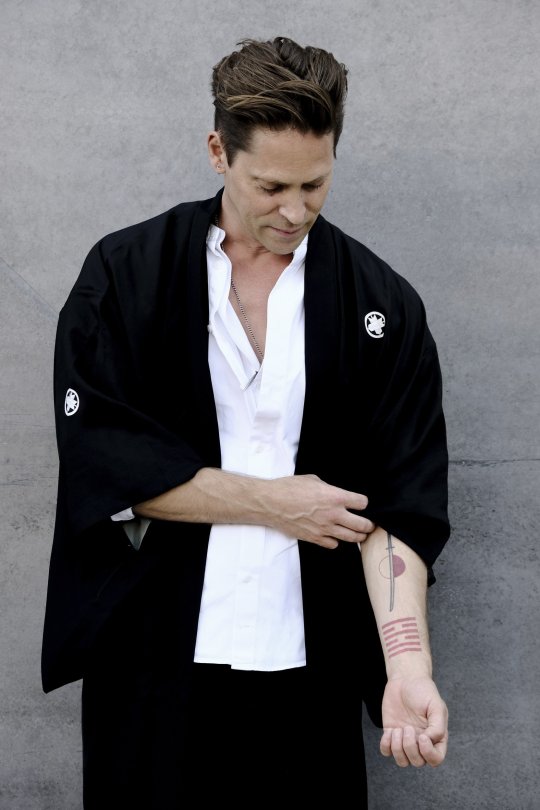
Neil for Blowout Magazine
#neil newbon#photoshoot#interview#nobigneil#japanese fashion#men's fashion#blowout magazine#magazine interview#astarion voice actor#astarion baldurs gate#no big neil#keep it neil#neilblr#tattoo#i ching#katana
60 notes
·
View notes
Text
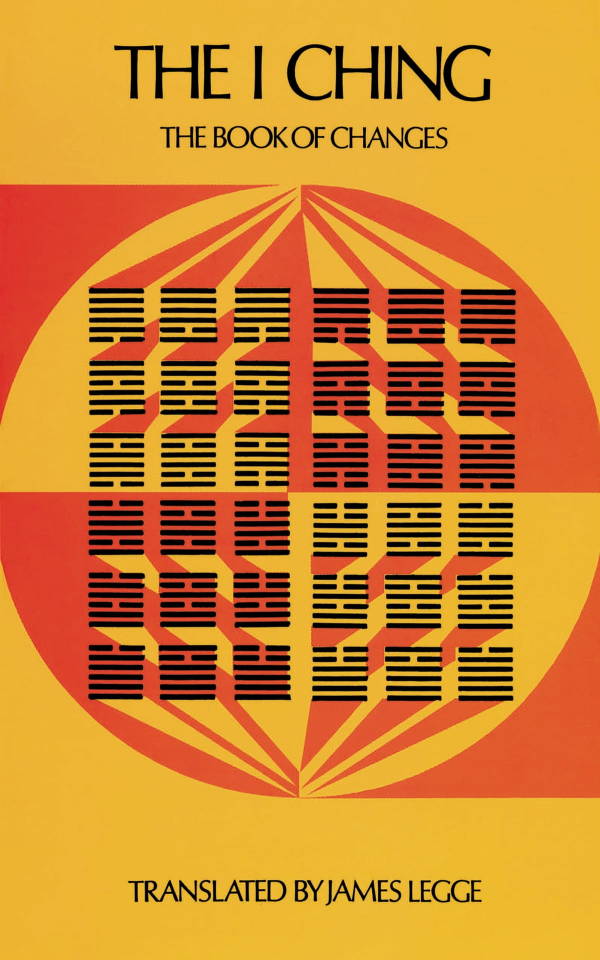
#book cover#cover design#I Ching#cleromancy#James Legge#Confucianism#China#Chinese#Taoism#change#The Book of Changes
106 notes
·
View notes
Text
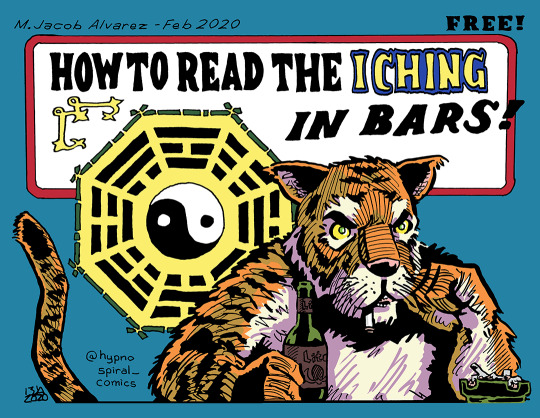


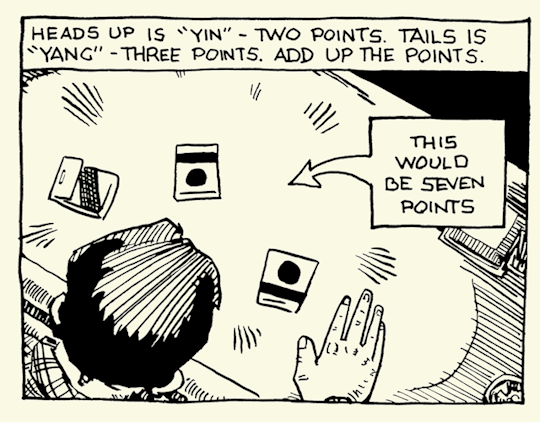
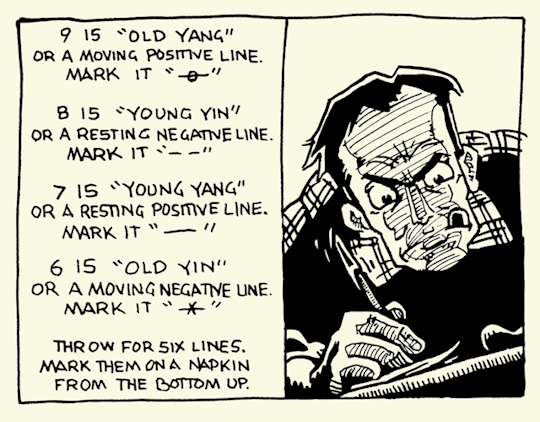


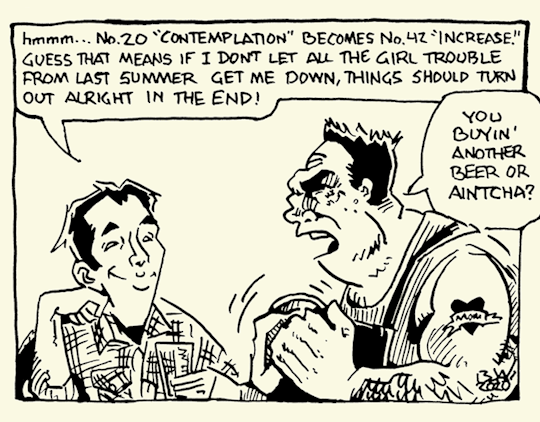
Read more of my work on my website:
244 notes
·
View notes
Text
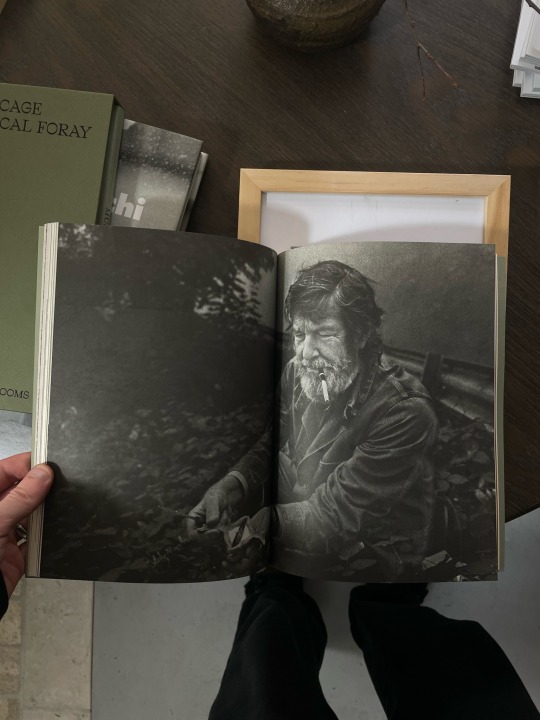
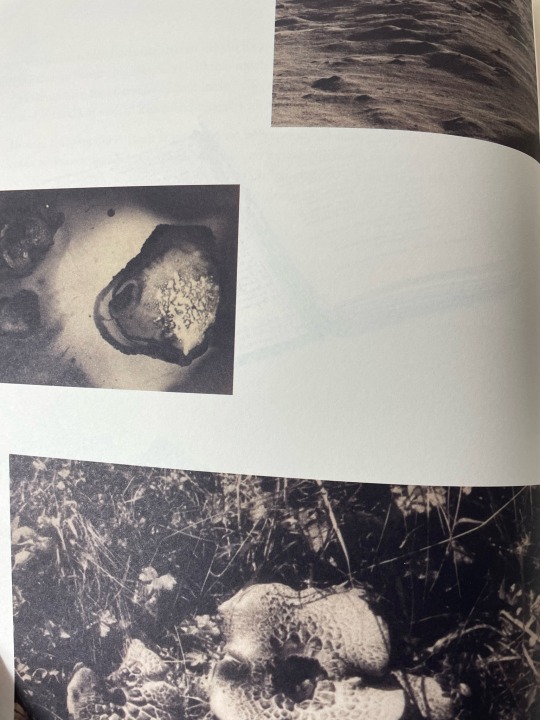

John Cage & mushrooms
#art#abstractart#carol christian poell#ccp#artist#danielgianfranceschi#avantgarde#abstract#collaboration#paris#john cage#cage#musique#musique concrete#ambient music#classical music#composer#i ching#wabi#mushrooms#mycology#monochrome#abstract expressionist art#marcel duchamp
66 notes
·
View notes
Text
[mdzs] In depth analysis of Lan Xichen’s name
It’s been 2.5 years since my last MDZS name analysis(!!), and since then I’ve gotten so many requests from the fandom wanting to see more. So here’s to everyone who have enjoyed reading my posts so far - today I’ll be diving into Lan Xichen’s name. Sit back as this is an interesting one!

Lan Xichen is his zi ,or courtesy name, which means ‘chancellor of the morning sunlight’ (Xi 曦 - morning sunlight; Chen 臣- chancellor, minister).
It derives from the poem ‘Xian Qing Fu’ 《闲情赋》 (Ode to a Quiet Life) by Eastern Jin dynasty recluse poet Tao Yuan Ming 陶渊明. Tao is remembered for his appreciation of beauty and serenity of the natural world around him, often admiring the good of others and documenting his wishes for a peaceful and fair society. (NB: The majority of Chinese people would know of the phrase ‘世外桃源’ - Xanadu / fantastical place of great idyllic magnificence and beauty, which originated from him.) This particular poem is a long study on the beauty and virtues of an idealised woman, and is known today as one of the most iconic bodies of work celebrating a woman’s true inner qualities. “悲晨曦之易夕,感人生之长勤” (bēi chén xī zhī yì xī, gǎn rén shēng zhī cháng qín), translates figuratively to ‘it is regrettable that the light of this morning will soon be replaced by the dark night, reminding people that life is filled with endless fatigue.’
One can’t help but draw parallels to Xichen’s life - he was always a noble figure, approached people with sincerity, treated everyone with an equal level of respect and believed deeply in those he stayed close to. But life could not always pay back what he gave to others, as he learnt of his trusted friend Jin Guangyao’s corrupt ways and betrayal - the light that was replaced by darkness.
I find it fascinating how poet Tao’s perspective of the world is so similar to Xichen’s. Tao is known for spending much of his life in reclusion, living in the countryside, receiving only a few guests he had a strong bond with, reading and indulging in his love for poetry. As a talented and knowledgeable man, he spent a decade of his life as a politician - but soon lost faith in a system that was characterised by nepotism, violence, corruption and civil disorder. Torn between ambition and the desire to retreat into solitude, he chose the latter. I wonder if MXTX drew inspiration from this, as Xichen also began as a leader in the cultivators’ world, is a huge lover and collector of literature, and after all the turmoil also decided to withdraw into reclusion.
Xichen’s birth name is 涣 (Huàn), which has two main meanings: 1) ‘melting of snow’; 2) ‘water dispersing in all directions’. His title is 泽芜君 (zé wú jūn), which literally means ‘nourisher of barren lands’ (泽润 - to nourish, bestow; 平芜 - land overgrown with weeds). Combining the two, we can understand his name to mean ‘water disperses in all directions, nourishing everything it touches’. 泽 in Chinese is used specifically to describe bestowing something deep, long-lasting and meaningful (as supposed a one time gift/favour - which would be 惠). In the book, MXTX also describes him as “清煦温雅,款款温柔” (meaning ‘warm, gracious and elegant, gentle in all aspects’). Clearly, his name highlights the grace and kindness he radiates and bestows on everyone around him. He is the keeper of peace and righteousness.
Bonus:
Note that the word Huan 涣 has a water particle, similar to his brother Lan Wangji’s birth name Zhan 湛 - it brings to mind the ‘Twin Jades of Lan’ title for the brothers, with a water element - like Pisces.
Interestingly, in ‘I Ching’ or ‘Book of Changes’, the ancient Chinese divination text which contains of 64 hexagrams, there is a 涣 hexagram:

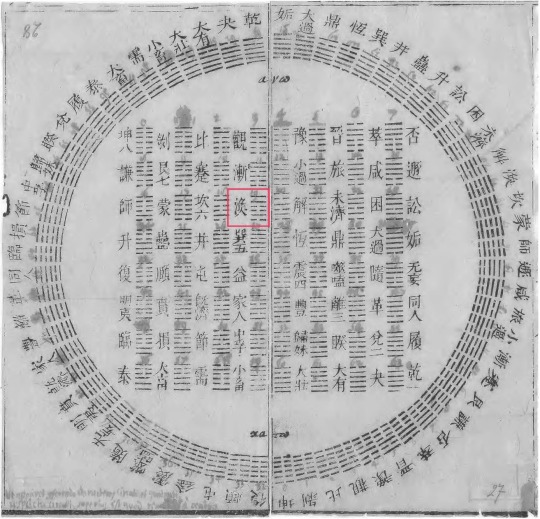
Again, it represents how gentleness can summon greatness. I copy the below from iching-online.com:

In simple terms, it symbolises water that washes away dirt and baptises new life within oneself. And the aftermath is precisely Zhan 湛 in his brother’s name, meaning crystal clear water.
Other name analyses:
Wei Wuxian
Lan Wangji
Jiang Wanyin
Lan Sizhui
#the untamed#mo dao zu shi#mdzs#mdzs meta#lan xichen#Chinese names#name analysis#male names#蓝曦臣#lan huan#蓝涣#魔道祖师#蓝湛#lan zhan#i ching#64 hexagrams#Chinese novel#Chinese drama#Chinese#Chinese cultural#陈情令#chen qing ling#cql
524 notes
·
View notes
Text
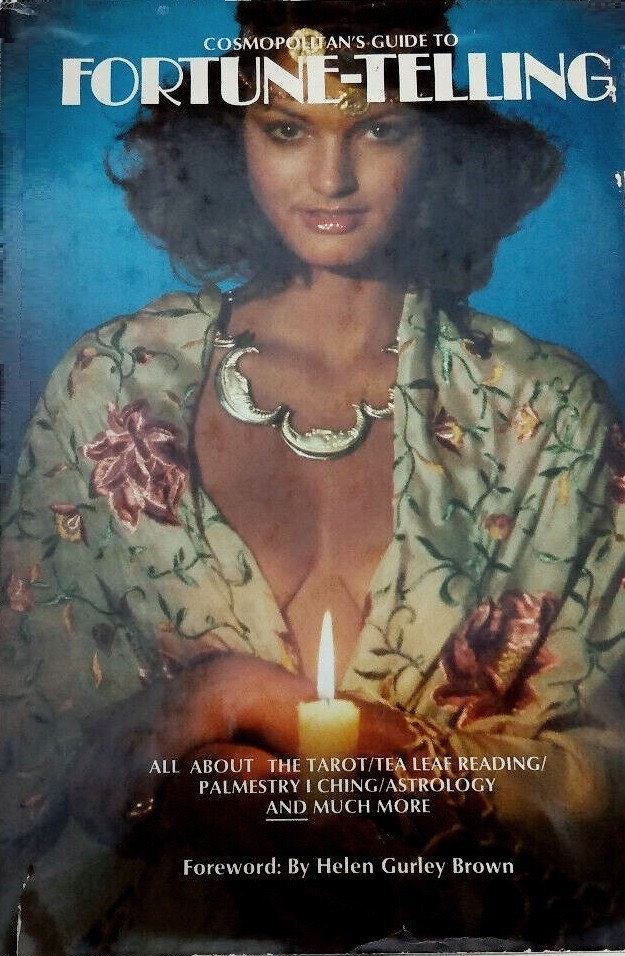
Cosmopolitan's Guide to Fortune-Telling (foreword by Helen Gurley Brown) - Cosmopolitan - 1977
#witches#fortune-tellers#occult#vintage#cosmopolitan's guide to fortune-telling#cosmopolitan#fortune-telling#magazine#tarot#tea leaf reading#palmestry#i ching#astrology#helen gurley brown#1977
36 notes
·
View notes
Text
ask the oracle!
On April, new date on:
Sunday 04.28 20 h NY
I Ching & Tarot cards to get answers you can trust, for making better plans and decisions. Always private!

To get a reading:
follow TM's blog
give a "Like" to the post announcing on day 28 th the activity begins, and comment on the oracle you prefer and why
I'll send a private chat to the first two people doing so, to receive up to 3 questions from each, about any subject or time you're interested in. You're free to ask!
The activity ends at 21 h. Let's meet and enjoy mancias!
14 notes
·
View notes
Text
Rosemary West's House of Fortunes (DOS, Villa Crespo Software, 1993)
A multi-disciplinary divination tool. Rosemary is Rosemary K. West, not serial killer Rosemary Pauline West.
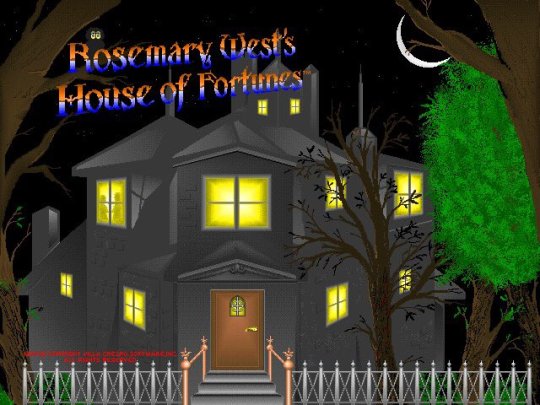

#internet archive#in-browser#dos#old software#vintage software#retro graphics#fortune telling#divination#astrology#numerology#i ching#tarot#1993#1990s#90s
27 notes
·
View notes
Text
It was my best friend's birthday yesterday, and I wanted to show off the progression series of the cross-stitch project I made for them! :D

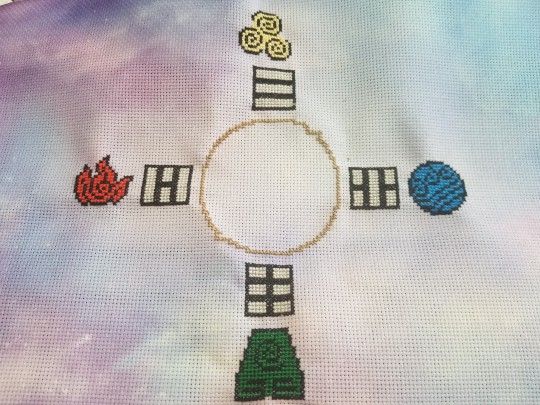
I combined the symbols for Water, Earth, Fire and Air from Avatar the Last Airbender with their respective I Ching symbols, because we are both fascinated with those things! ^_^ (I mean, Air is with the Heaven symbol, but it's opposite to Earth, so it still kinda works.)

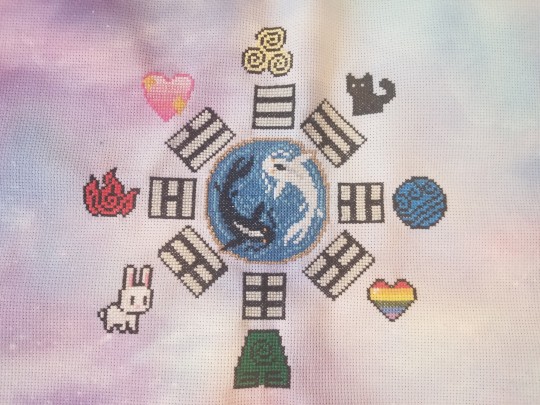
In the center are Tui and La, the fish that resemble Yin and Yang in Avatar. For the other I Ching symbols (Wind, Thunder, Mountain and Lake) I decided to not take them literally, and instead use symbols that were more important to my friend and me.
Positioned to be opposite colors of the fish, I placed a black cat and a white rabbit. They symbolize how we like to imagine our spirits / personalities in animal form. They are the cat, and I am the rabbit. ^,^ (No, I will not elaborate.)
In the remaining spots, I put a pink heart for me, because whenever we text I always use this 💖 emoji to say I love them, and a rainbow heart for them, because they are LGBTQ+ and tend to use all the colored heart emojis to say they love me.
❤ 🧡 💛 💚 💙 💜
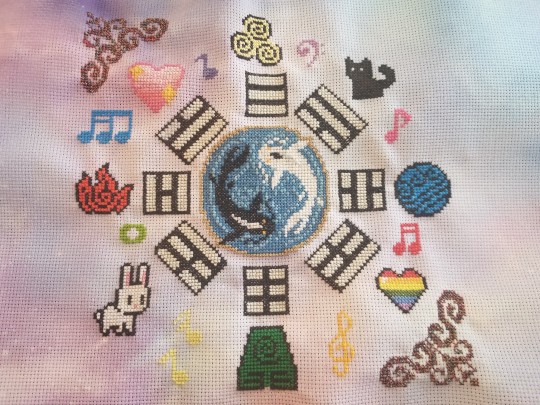
I thought the piece felt a little empty, and I learned that my friend wants to learn music, so I added a rainbow of random notes and musical symbols! And when I went to Michaels to find a frame for the whole thing (pictured below), I found this beautiful and sparkly metallic thread that reminded me of rainbows and fireworks, and I knew I HAD to implement it into the piece, because my friend would love that! ^_^

The whole thing took me about a month to complete, working on and off between life and video editing. ^_^ My friend is one of the most special people in the world to me. This cross-stitching is something I adored every moment of creating, and I couldn't be more proud. And I'm so relieved they got it on time for their birthday, because apparently whoever delivered it messed up and sent it to the wrong house, even though my friend confirmed that I clearly wrote the correct address on the package! XD
Thanks for indulging me! ^_^
120 notes
·
View notes
Text
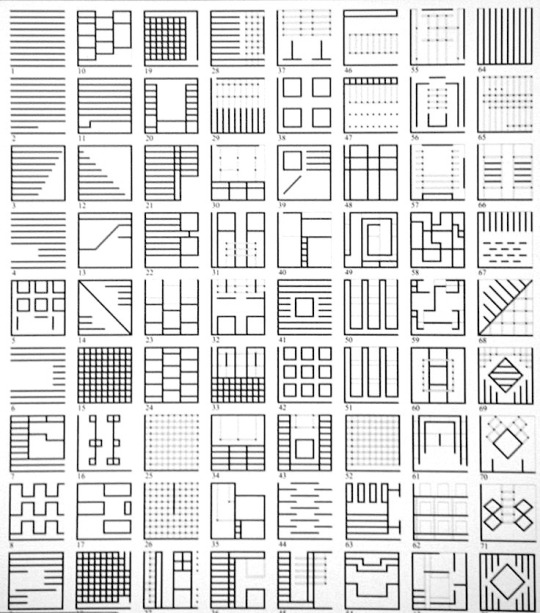
Franco Purini, classification through sections of spatial situations, 1968 The I Ching or Classic of Changes
18 notes
·
View notes
Text
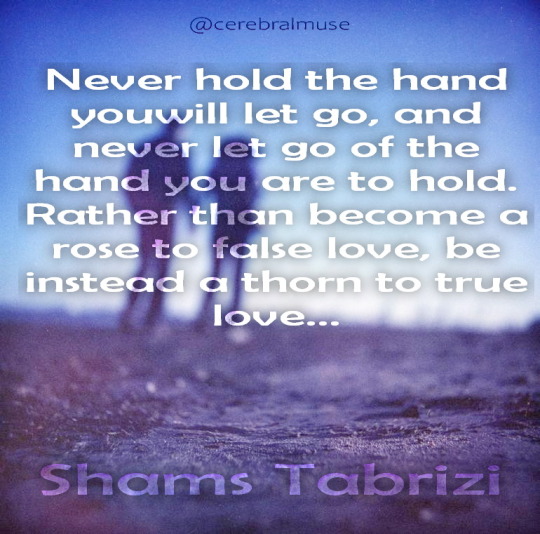
Two people who devote themselves in a responsible fashion to each other will accomplish things that neither would be able to do alone… One who knowingly enters into a relationship just to avoid being alone, risks losing his self-esteem. One may need to wait a long time for the right person to present himself. Inappropriate liaisons must be avoided. The wait will be worth the while… Do not be coerced into a union that is shallow or superficial. Such irreverence will not benefit anyone…
~ From The I Ching
10 notes
·
View notes
Text

Neil for Blowout Magazine
#neil newbon#photoshoot#interview#nobigneil#japanese fashion#men's fashion#blowout magazine#magazine interview#astarion voice actor#astarion baldurs gate#no big neil#keep it neil#neilblr#i ching#tattoos
32 notes
·
View notes
Photo
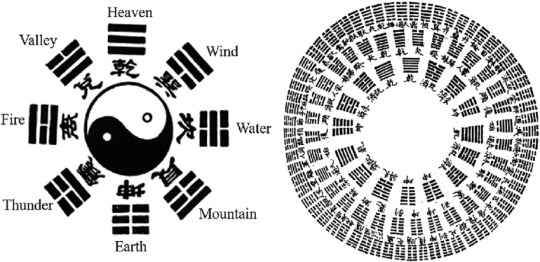
Daoist nuclear trigram and hexagram models (Zhuangzi, Peirce, and the butterfly dreamscape: concentric meaning in the Qiwulun 齊物論, Jamin Pelkey, Toronto Metropolitan University)
230 notes
·
View notes
Text
fun fact: liu yao's name (六爻) is related to the I Ching divination practice!
"The I Ching book consists of 64 hexagrams. A hexagram in this context is a figure composed of six stacked horizontal lines (爻 yáo), where each line is either Yang (an unbroken, or solid line), or Yin (broken, an open line with a gap in the center). The hexagram lines are traditionally counted from the bottom up, so the lowest line is considered line one while the top line is line six. Hexagrams are formed by combining the original eight trigrams in different combinations. Each hexagram is accompanied with a description, often cryptic, akin to parables. Each line in every hexagram is also given a similar description."
"Wen Wang Gua (Chinese: 文王卦; pinyin: Wén Wáng Guà) is a method of interpreting the results of I Ching divination (...) The method is popular in South East Asia. It is known by various names: (Liu Yao) (six lines) refers to the fact that it interprets the meaning of six symbols"
and the fact that coins are used for this method of divination is also related to cq's nickname tong qian!

37 notes
·
View notes
Text
How to Consult the I Ching
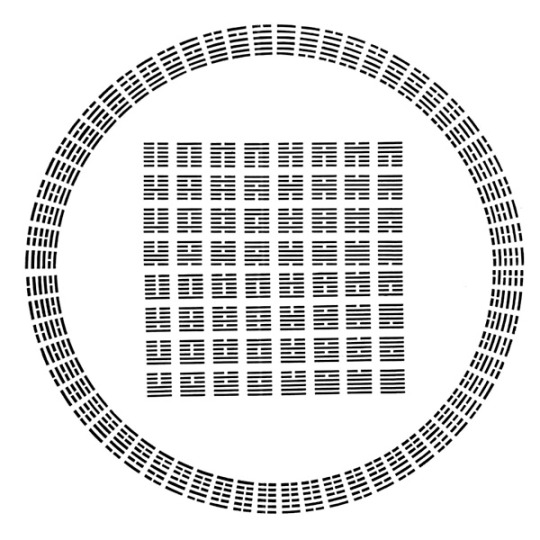
Divination is the art of seeing and interpreting signs in everything around us. The goal of divination is to encourage well-being by helping a person live in harmony with the universe around them. One of the best known systems of divination is the I Ching, or Book of Changes. For some 3,000 years, people have turned to the I Ching to help them uncover the meaning of their experience and to bring their actions into harmony with their underlying purpose. The I Ching consists of 64 hexagrams or six-line diagrams. Each hexagram is accompanied by a text containing folk poetry, historical tales, and commentary. These ancient texts describe the conditions associated with the 64 archetypal patterns of change. They convey the laws and principles pertaining to time and change. The hexagram images reveal the patterns through which change manifests itself in the ebb and flow of time.
The underlying premise of the I Ching is that all events--past, present, and future are interconnected. The future develops out of the present according to a set of fixed laws. To know the present, then, is to know the future. The I Ching counsels timely action in the moment for a given set of circumstances. Each moment has a pattern to it and everything that happens in that moment is interconnected. As a system of divination, the I Ching reflects your current connection with the Tao, or Universe. It serves to freeze the present moment at the time of your inquiry, responding in the form of a hexagram. By evaluating the hexagram that describes your current pattern of relationship, you can divine the outcome and act accordingly.
The I Ching is a microcosm of all possible human situations. It serves as a dynamic map, whose function is to reveal one's relative position in the cosmos of events. The hexagram texts address the sixty-four archetypal human situations. The commentary of each hexagram reveals the optimal strategy for integrating or harmonizing with the inevitable for a given condition. It provides the appropriate response to your inquiry. It affords a holistic perspective of your current condition and discusses the proper or correct way to address the situation.
The Inquiry
To consult the I Ching, one must first frame an inquiry. Formulating an appropriate question and writing it down is a key element in the process of divination. Focusing on a question develops a receptive state of mind and helps you clarify what it is you are truly seeking. It is important to word your inquiry in a concise and clear-cut manner. A vague question will elicit an ambiguous or misleading response. Be specific about your intent, the circumstances, and the scope or nature of the response you desire.
Avoid the tendency to ask yes/no or either/or types of questions. A simple yes or no question leaves no room for elaboration and the either/or inquiry is actually two questions. Inquire instead about the nature of the situation, the appropriate attitude and strategy, the outcome of a particular course of action, and so forth. If time is a factor, include this element in your inquiry as well. Appropriate inquiries might be worded as follows:
How would it benefit me to pursue a career in _____?
What aspect of my character or attitude is hindering my progress?
Which hexagram best describes my present situation?
I would like the I Ching to comment on my intent to travel to _____ in three months?
Casting a Hexagram
Once you have formulated an appropriate inquiry, you are ready to "cast a hexagram." Casting a hexagram is the term used to describe the method for generating the six lines of the hexagram. Casting was devised in ancient China as a mechanism for reflecting or mirroring what the subconscious or inner self already knows. The subconscious mind, or right hemisphere of the brain, knows which hexagram best describes your current situation or condition. It knows because it accesses the invisible sea of information that we bathe in daily--the all-pervading frequencies of consciousness immanent in all phenomena. The subconscious has the capacity to analyze or devour information all at once while the conscious mind, or left cerebral, analyzes information one bit at a time. The conscious mind allows us to see only the surface of things. Accessing the all knowing of the subconscious is difficult since there is usually little or no communication between the left and right cerebrals.
Various casting methods were devised to resolve this predicament. The subconscious mind is able to gather the information desired and influence the casting, regardless of the method, to indicate the most appropriate hexagram. The original method for casting a hexagram is known as the "yarrow oracle." This method involves the manipulation of fifty yarrow stalks in an elaborate procedure that is repeated six times in order to determine the six lines of the hexagram. A simple "coin oracle" was devised by Chinese philosopher Kuei Kuo Tze some 2500 years ago to replace the complex yarrow stalk method. The coin method requires tossing three coins six times to generate each line of the hexagram. Like a building, the hexagram is assembled from the ground up--the bottom line being considered the first line in the text interpretations.
The easiest way of casting a hexagram is to use my online hexagram generator which is based on the yarrow stalk method. The result is the immediacy of the coin tossing method with the reliability of the yarrow stalk method. For a reading, click on the "Cast a Hexagram" button. A small window will appear. Click the "Create Hexagram(s)" button to generate the hexagrams. Red indicates a changing line. A hexagram with one or more changing lines indicates that the situation related to your inquiry will soon be changing. The changing lines will turn into their counterparts, transforming the initial hexagram into a changed hexagram. As a result, you will read two hexagrams. The initial hexagram corresponding to your present situation is read first, followed by the changed hexagram relating to the eventual development. Changing lines usually address the future implications of a particular course of action. They may describe the changes you are likely to experience and how to deal with them.
Interpreting the Message
The I Ching does not answer a question in a direct, logical manner. It responds in the form of a hexagram, which serves as a model or paradigm of appropriate behavior. It provides the framework within which to perceive and comprehend the archetypal condition related to your query. It provides a holistic perspective and comments on the situation or condition. It offers suggestions on the best way to approach this condition. It presents advice for what to do to act in accord with or avoid a particular prediction. You must then interpret the message and determine for yourself the most appropriate course of action with regard to your inquiry. This process engages and accesses the subjective mind and intuitive awareness.
When your interpretation differs from the eventual outcome, then reevaluate the commentary in light of what actually transpired. In this way, you develop proficiency in your ability to interpret the I Ching's sometimes paradoxical and enigmatic aphorisms. At times, the oracle will provide an incomprehensible response that does not seem to fit the question posed. When this occurs, the I Ching may be overriding your stated inquiry in order to address a more significant issue, an unstated concern, or unconscious projection. The oracle may also be alerting you to an impending crisis or significant change. Keep in mind, too, that all conditions are transitory. Nothing is permanently fixed or static, so whether you like or dislike the response, conditions will eventually change with regard to your inquiry. Consult the I Ching.
#i ching#shamanism#tao te ching#divination#shamanic drumming#free readings#spirituality#oracle#hexagram
11 notes
·
View notes
Text
this message is for you 🖤
for you, the i ching gives me hexagram 22 and hexagram 7. beauty and small taming.
while it feels like others may not see you— as oftentimes their depictions of you seem to fall short of the multifaceted being you are— beauty is in the eye of the beholder. it’s impossible to capture every aspect that makes you you and impossible to expect someone to try. their inability to see or flawlessly capture all of you is inevitable. you must not forget that validation must come from within first. cultivate your understanding of yourself and then you will begin to see what you already know in others’ expressions of you. this external validation should feel like sprinkles and whipped cream on ice cream. not necessary, but it just makes the whole thing— here, your security in yourself— so much sweeter.
how can you cultivate this now? what self-loving act can you do today?
#i ching#channeled message#collective reading#messages from the i ching#hexagram#🫧 the oracle’s queue#🚪 the oracle next door#this message is for you 🖤#card reading
15 notes
·
View notes